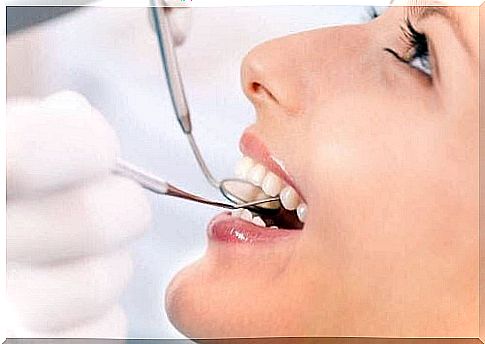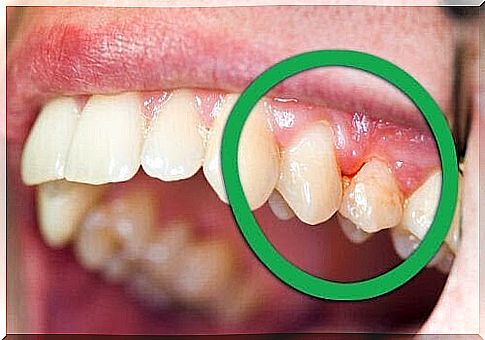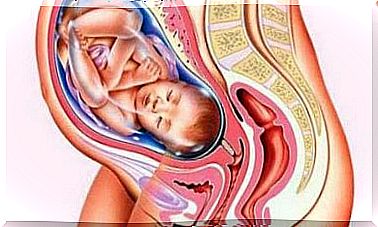Gingivitis During Pregnancy: Symptoms, Causes And Treatment

A woman who undergoes revolutionary hormonal changes is more likely to get infections and diseases. Gingivitis during pregnancy is one of these conditions.
Gingivitis is more common in pregnant women than you might think. It is a dental disease that causes severe inflammation of the gums, including bleeding.
The infection damages the tissues that support the teeth. It develops after having had plaque for a long time. It affects about 50% of pregnant women.
Even if it does not pose a risk to the pregnancy, it should not be allowed to proceed. If you do not treat it in time, you can have consequences that can be permanent. A severe periodontal disease can in extreme cases lead to a premature birth.
Causes of gingivitis during pregnancy: Why is it so common?

Increased blood circulation
Women have more blood in their bodies during pregnancy. This can lead to pain and inflammation in the gums and in some cases bleeding.
Dental sensitivity also increases during pregnancy due to hormonal changes, so the risk of pain and inflammation in these areas is always present.
Disgust at mint taste
Although rare, there are pregnant women who develop an aversion to mint flavor. Because the taste makes them nauseous, they try to avoid it.
Toothpaste often tastes of menthol which can increase the incidence of vomiting and damage the gums as a result.
Stomach acids found in vomit weaken the tissue in the gums and tooth enamel, making oral health vulnerable.
Breathing through the mouth can cause gingivitis during pregnancy
When a pregnant woman has a cold, she probably suffers from, among other things, nasal congestion. Having clogged nostrils forces her to breathe through her mouth, which increases the risk of gum problems during pregnancy.
Changes in saliva can cause gingivitis during pregnancy
Potassium, calcium and iron increase in saliva during pregnancy. Saliva has a lower pH, which means that it becomes more acidic.
These conditions are favorable for the accumulation of plaque and lead to the spread of anaerobic bacteria. Similarly , mucins increase during pregnancy. The mucin protein increases adhesion, which promotes the destructive properties of bacterial plaques.
Symptoms of gingivitis
- Pain and inflammation.
- The gums get a bright appearance.
- Sensitivity, inflammation and redness of the gums.
- Bleeding occurs when you brush your teeth.
If a woman has any of these symptoms during pregnancy, she should immediately go to the dentist for prompt treatment and thus avoid complications.
Complications of gingivitis during pregnancy
A pregnant woman must be aware of all conceivable conditions during pregnancy. Although it may seem that oral diseases do not pose a major risk, they can have unimaginable consequences if they are not treated in time.
- Blisters. Oral pyogenic granulomas during pregnancy are called epulis gravidarum. Fortunately, it is not difficult to get rid of them, but they are still uncomfortable and disturbing.
- Premature birth. Women suffering from a periodontal disease are three times more likely to have a premature birth. The placenta receives substances secreted by the immune system. These cause the date of birth to occur earlier, usually before the 37th week.
- Tartar is the main source of bacteria in the immune system.
Treatment of gingivitis during pregnancy
Something as simple as good oral hygiene can prevent gingivitis. It is even more important to keep track of health during pregnancy than in normal cases, as any changes that occur in the body can exacerbate the consequences.
You should brush your teeth for at least three minutes, and you should do it at least twice a day. The toothbrush should have soft bristles to minimize damage to the gums and it should be replaced every three months. We also recommend flossing daily.
To rinse your mouth with warm water and salt once a day helps maintain a healthy oral health. In addition, we recommend that you plan at least one visit to the dentist for each trimester to ensure that everything is in order.









